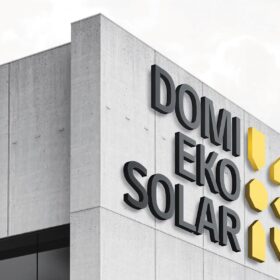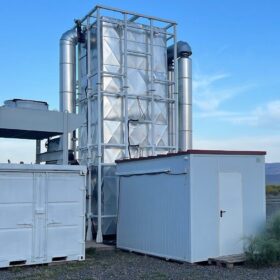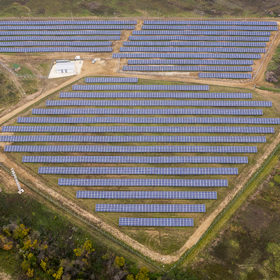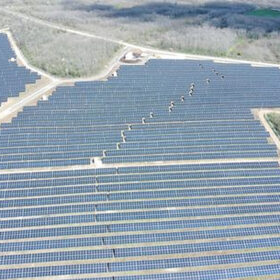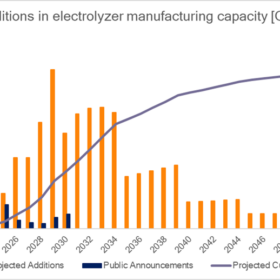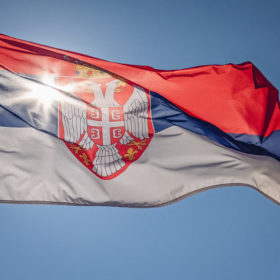Serbia’s Domi Eko commissions 150 MW TOPCon solar module factory
The factory is located in Velika Plana, central Serbia. The production equipment was provided by Italian manufacturer Ecoprogetti.
Serbia’s first renewables auction draws lowest solar bid of €0.08865/kWh
The lowest solar bid in Serbia’s inaugural renewable energy auction was €0.08865 ($0.096)/kWh. The exercise is planned to allocate 50 MW of solar and 400 MW of wind power.
Thermal energy storage system based on recycled ceramics
Serbia-based Storenergy has developed a thermal energy storage (TES) solution that uses recycled ceramics as the storage medium. It says its solid-state storage solution is designed to ensure long lifespans and low maintenance costs.
Impact of solar module soiling on grid-forming inverters
New research from Serbia claims air-polluted urban climatic conditions may not only induce maximum power point (MPP) tracking problems in PV systems but also reduce power yield by up to 30%. The scientists also said that soiling may significantly affect the functionality of single-stage inverters operating in grid-forming mode.
Serbia launches first renewables auction with 50 MW of solar
The Serbian authorities have launched the nation’s first renewable energy auction, with 50 MW of PV and 400 MW of wind power. The projects will be supported through contracts for difference for 15 years.
Serbia allocates quota for solar auction, determines market premium
The Serbian government has allocated a quota of 50 MW for its first solar auction. Solar plants with capacity of more than 500 kW will be allowed to participate in the competitive tendering process, with the ceiling price set at €90 ($96.10)/MWh.
The Hydrogen Stream: Green hydrogen market could hit $850 billion in 2050
Research outfit Rethink Energy says the green hydrogen market could reach $850 billion in value by 2050.
Serbia seeking partner for 1 GW of solar, 200 MW battery storage
The Serbian government is seeking a strategic partner to develop at least five PV plants with a cumulative capacity of 1 GW/1.2 GWdc and at least 200 MW/400 MWh of battery energy storage. State power company Elektroprivreda Srbije (EPS) will own and operate the assets.
Serbia’s largest solar plant goes online
The 9.9 MW DeLasol PV project is located in the municipality of Lapovo, central Serbia.
Serbia targets 8.3GW of solar by 2024
Serbia is responding to European pressure to accelerate its energy transition to cleaner fuels by allocating €12 billion for wind, PV and hydropower facilities over the next two years. Thus far, there has been little in the way of development in the country, but some regulatory frameworks have been improved.
